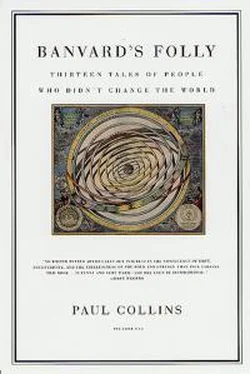His mother sent him to be educated by local Franciscan monks. They quickly noted the young boy's facility with new languages; when visitors came to the school, the monks would trot little George out first, and have him recite Latin to the impressed onlookers. By the age of nine, he was fluent.
His later schooling came among Jesuits, and then he was sent away to attend college under the tutelage of the Dominican order. He was by far the youngest student there, perhaps only fourteen or fifteen years old. But for all his abilities, George was fairly lazy, and his professors little better. His philosophy tutor was simply incompetent; another professor entirely neglected the usual course of classical studies, instead rambling on about his favorite subject, military fortifications. He might arrive and intone to the class
--Today we will be building berms.
And George would find himself and his classmates building clay models of fortified breastworks in the middle of the lecture hall. Meanwhile, his rhetoric and theology texts gathered dust.
George tired of his afternoon classes. It was a long walk from his lodgings into the city, and the coursework looked pointless to him. He began to cut class, opting instead to take meandering hikes through the city and out into the countryside. There he would thoughtfully write letters home to his mother complaining about being broke and how terrible college was.
She had already strained her finances to the breaking point just to send him.
Worse still, George had an utter inability to spend money wisely, and his clothes grew shabbier by the day. He took up a tutoring job with a well-to-do family to make up the shortfall, but his tatty clothes and irritating earnestness--he'd utter pious platitudes to them that he didn't half believe himself, just hoping to impress them--soon lost him the job. He was broke enough that he had to go home, but too poor to pay for the journey.
George watched the pilgrims and travelers on the streets of his town, pondering glumly how he could ever see his mother again. And then it came to him: the key to being treated differently was to become someone else.
Poor Irish pilgrims were well received in town when they begged for money.
The best way to get home, then, was to become an Irishman. He forged a paper to prove his Irish nationality, and then hit upon a clever way to cover his utter inability at English or Gaelic: he wouldn't speak it. Instead, he would only speak in his beloved Latin, the universal language of all educated pilgrims.
He slowly made his way home. Begging in Latin wasn't exactly a bum's paradise; he later recalled that he was limited to "accosting only clergymen or persons of figure, by whom I could be understood." And as always, the moment a kindly priest gave him a few coins, it was spent. By the time he reached home, his clothes were in tatters; his mother's neighbors were scandalized.
His mother upbraided him for his appearance, and he half expected a scolding for his imitation of an Irishman. But he was wrong. His mother was now so impoverished herself that she took him aside one day and calmly suggested that perhaps he should go visit his father, and that maybe he should keep up his Irish act in order to get there. She outfitted her young impostor as best she could, fitting him with a staff, a cloak, and a long black buckram gown.
Scraping up her last few gold coins, she sewed them into his clothing.
He retraced his route back to his college, and from there faced hundreds and hundreds of miles on the open road between there and Cologne. And that roadside was littered with bodies--puffed, bloated bodies, with blackened tongues half pecked out by birds: "Now and then at some lonely place lay the carcase of a man rotting and stinking on the ground by the way-side, with a rope about his neck, which was fastened to a post two or three yards distant."
These were highwaymen, who were usually discharged soldiers and sailors desperate for money. They had been killed and left to rot by villagers as a warning to other thieves.
There were warnings for the likes of George, too --little crosses by the side of road, built of stone and wood, memorials to unwary travelers, young and alone, who had been robbed and murdered on that very spot. George would stop to ponder them, and then wonder what lay ahead for his own lonesome journey.
He was not yet sixteen years old.
Eventually George reached the great gates of the city of Lyon, where a guard asked if he wanted alms. Yes, I do, George replied quite innocently.
The guardsman led George through the streets of the city for well over an hour; the boy could scarcely keep up, as he was looking agog at the great squares and grand buildings and cathedrals of the big city. When they reached another gate at the opposite end of the city, the guard stopped and reached into his pocket.
--Here, he said, clapping a couple of copper coins into George's hand. You are to pass through that gate. If you ever come back into the city of Lyon, you will be whipped.
He walked away, leaving the boy speechless.
After a journey of five hundred miles on foot, George found his father in Germany, still living in the town where he'd been told to look. But nothing prepared him for his father's house: it was bare, even poorer than his mother's. After a long and dangerous journey to meet a man he barely knew, he felt it had all been a waste. Sighing over "the forlorn condition I saw myself in, the mean figure I made in an obscure village," George longed now simply to go back home to his mother. His father, by contrast, was delighted to have his long-lost son back in his home again. He hadn't seen his child in over ten years, and here he was again, now a strapping young man.
--You should look in town, see if they'll hire you as a tutor, he'd urge. Then you could stay here.
George reluctantly went into town looking for a school or rich family to hire him. But there was a university there, and the streets were already filled with poor students--so many, in fact, that they would go house to house as holy buskers, singing pious Latin verses for handouts. George knew Latin better than anyone, but when he attempted it, got only stares; Germans had their own way of pronouncing Latin, and George's accent simply baffled them.
His father was some comfort, for he talked incessantly of his happy younger days traveling in Holland, and young George began to imagine his own trip someday. Poor as he was, his father was a worldly man--he could readily speak Italian, Spanish, German, and French. George listened and learned, and spent his alone hours pacing about his father's house, wondering what to do next.
His Irish disguise hadn't worked well because there were so few people he could beg from, and discovery could come at the hands of the first priest who happened to be Irish. The way around this problem, George figured, was to become a nationality that everyone had heard of but no one knew anything about.
A convincing foreigner needs a language and a passport, and George set about procuring both. The passport was the easiest, though it was also the most badly botched. Like any self-respecting sixteen-year-old dropout, George had already forged an ID or two--his passport, after all, currently listed him as an Irishman. He forged traveling papers for a Japanese national as well as he could, though his handwriting was so sloppy that it took many attempts to get even a mildly believable document together. It still needed an official wax seal; for this, George simply melted the one off his old fake passport and melted it back onto the new one.
Forging a language was another matter altogether. The easternmost language that George knew anything about was Hebrew, in which sentences run from right to left on the page. Sensibly enough, he decided the Japanese alphabet would too. He'd heard that they had a different alphabet in the Far East, so he created a distinct set of Japanese alphabet characters, training himself to write and "read" them backward. Eventually he was able to do it with nearly the same ease as he had with any genuine language. As a finishing touch, he invented a Japanese calendar. Each year now had twenty months.
Читать дальше











